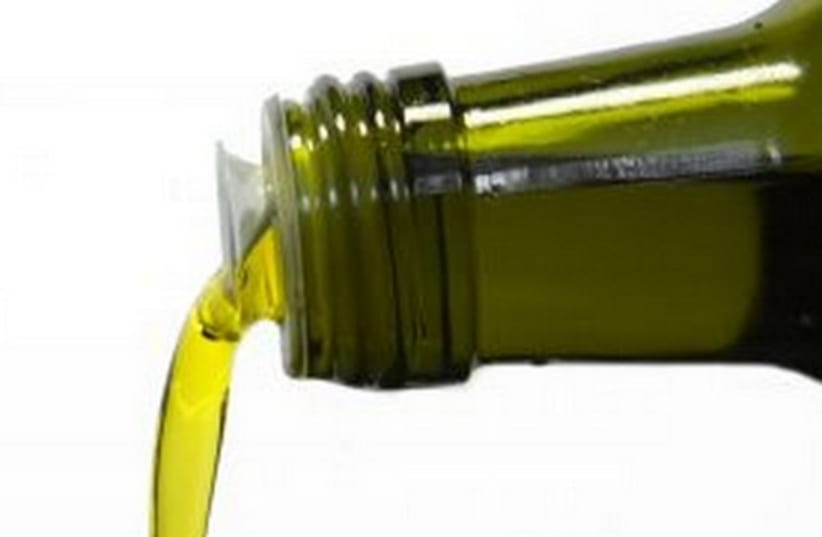Leccino: Originated in Tuscany, extremely mild, recommended for grilled fish, a fresh green salad, sauces and baking sweet pastries.
Koroneiki: Originated in Crete, with a delicate bitterness and pungency. Wenkert recommends it with steamed vegetables, a plate of antipasti, vegetable soup or cold chicken salad.
Picual: Originated in Andalusia, Spain. Fruity, low bitterness. Recommended with fish ceviche, green vegetables, tomato sauces and vinaigrettes.
Barnea: Israeli hybrid of different species. Very aromatic with prominent bitterness. (I am not crazy about this one) Good with more assertive dishes like pasta, roast chicken or beef carpaccio.
Picholine: Originated in the Languedoc region of southern France. Aromatic with light bitterness and medium pungency. Wenkert suggests it for cooking and baked potatoes, marinated chicken, beef fillets and vinaigrettes.
Nabali: Originating in the Nablus area. Considered fruity, buttery and fragrant. Goes very well with fresh vegetables, antipasti, lentil salad, a plate of hummus or tehina and roasted meat dishes.
Souri: Originating in the Tyre area of Lebanon. Extremely fruity with a peppery taste and probably the most popular olive oil in Israel. Good for seasoning fresh vegetables, oven-baked root vegetables, on labaneh or hummus and in tabouleh.In keeping with our olive theme, this Hanukka I’d like you to consider serving more than just latkes and doughnuts at your holiday table. Try farinata, a delicious Italian chickpea-olive oil bread from Liguria akin to something our ancestors might have eaten (chickpeas and olive oil are both indigenous products) at this very same time.FARINATA8 servingsA rich-tasting Italian chickpea bread, farinata is a cousin of the Italian socca bread, which is also made with chickpea flour but is thin and crispy. To crisp up the top of this bread, you can slip it under the broiler for a few minutes after baking. Feel free to add chopped onion, garlic, other herbs, olives or blanched vegetables to the batter if desired.✔ 2 cups chickpea flour ✔ 400 ml. water ✔ 61⁄2 Tbsp. extra virgin olive oil ✔ Coarsely ground black pepper ✔ 3 sprigs rosemary, broken into piecesPut the chickpea flour in a bowl and whisk in the water slowly to dissolve lumps. The consistency should be one of a crepe batter. Cover and set aside for two hours (can also keep it overnight) at room temperature.Preheat the oven to 220º. Add salt to the batter. Pour the olive oil into a heavy baking pan or cast-iron frying pan and swish it around so it covers the bottom and sides. Place in the oven and heat, making sure the oil does not burn.Carefully pour the batter into the hot pan and mix with a fork so that most of the olive oil that has risen to the top is incorporated in the batter. Sprinkle the rosemary and a generous amount of pepper on top. Bake for 30 minutes or until golden on top and the bread leaves the sides of the pan. Remove from the oven, let cool slightly and cut into pieces. Serve warm (I also like it cold!).
Q & AI found the topic of your article on allergies very interesting. Israel, however, is a country in which there are many foreigners, so the food industry labels products in English as well as Hebrew. However, when I go shopping and look at the food to see what kind of ingredients are in it, in many cases the ingredients written in English are covered by a Hebrew label. Why couldn’t they place the label somewhere else?
--Robert Baumgart I can empathize. I recently had a similar problem when I bought a package of imported gluten-free lasagna noodles that had a recipe (in English), which was covered with a label and didn’t appear in Hebrew. I called the importers, and they read me the recipe from an unlabeled box! Sometimes it is due to thoughtlessness; but according to several manufacturers, the problem often lies in the fact that according to Israeli food labeling laws, certain information is required to be easy to read on the label (like ingredients, weight, last day of sale, manufacturer’s info, etc., all in Hebrew), which leaves little space to put the label and often means having to sacrifice something (like the ingredients in English). The most productive thing to do is to call the manufacturer’s customer service, complain about the label, and then ask to receive the ingredients in English by e-mail. We live in an imperfect world.Where in Israel can I get a copy of your English cookbook The Essential Book of Jewish Festival Cooking? I have tried several bookstores.
--Sharon Safra-Blum As far as I know, it is not available in Israel and can only be ordered though Amazon (where it is cheaper than in American bookstores). However, you might have to wait a bit, since the first printing was sold out and the new edition will only be coming out in a few months. It is also available on Kindle.Thank you for your always useful hints. Please help me – I want to make a simple garlic sauce for fish or oven-baked fish.
--Rose One of the most delicious fish dishes I’ve ever created was also one of the simplest. I marinate white fish fillets in a combination of avocado oil, crushed or sliced garlic and lemon juice (you can make a mixture of these and brush the fish on all sides instead of marinating), and then just pop it in a 180º oven (in the same Pyrex dish in which they were marinating) for 6 to 8 minutes for fillets. Season with salt and pepper and serve. (Best to marinate the fish about an hour.) You can brush the mixture on pan-fried fillets as well.
